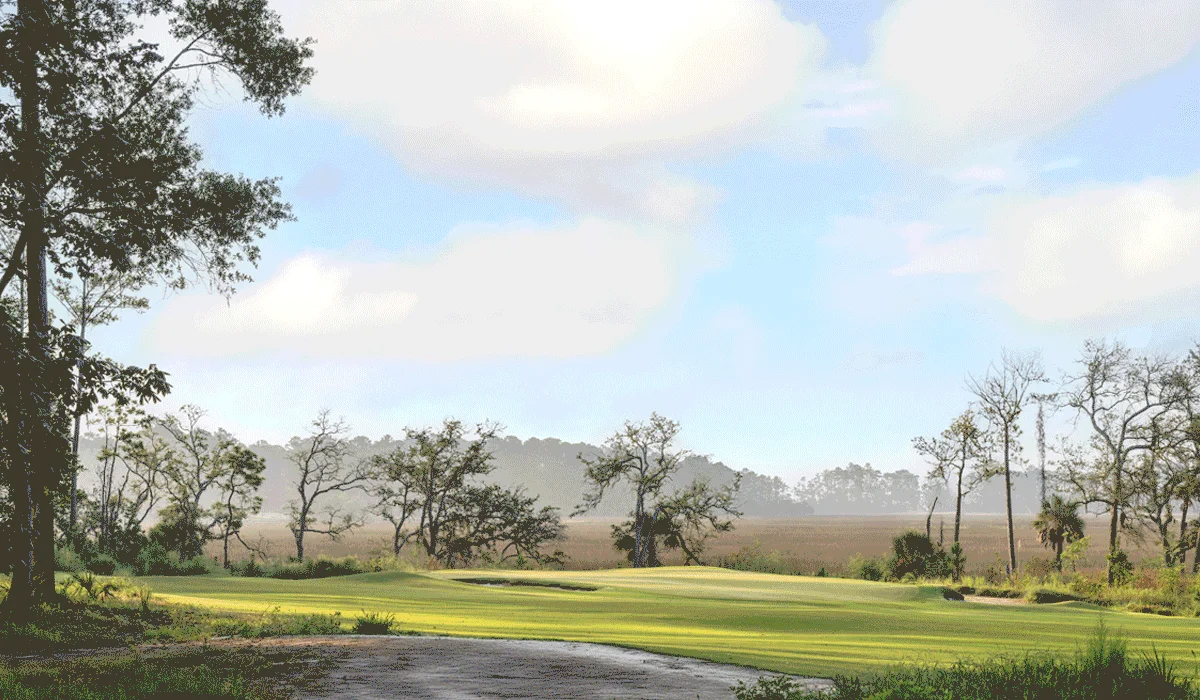Palmetto Bluff Real Estate Company Sales Office
Office Hours
Monday-Friday 9am - 5pm
Saturday 9am - 4pm
Sunday 12 - 4pm
Saturday 9am - 4pm
Sunday 12 - 4pm
I was infatuated with nature documentaries as a child. Watching mighty predators stalk antelope across grassy savannahs before using their powerful claws and teeth to take down their prey. I still adore these documentaries as an adult, but I have since learned that the same scene can be witnessed every day in my own backyard. And no, that does not mean I have lions and gazelles running around my house. I am referring to a small but outstanding predator that can be found in anyone’s yard…dragonflies!
Dragonflies are incredible hunters that successfully capture prey up to 95% of the time they go after a meal. For comparison, a pride of lions is close to 30%. While we will not see a dragonfly chasing down deer that are eating people’s begonias, adult dragonflies predate on mosquitos, flies, gnats, and pretty much any insect smaller than them. This diverse diet is accompanied by a large appetite where one dragonfly is estimated to consume ~100 mosquitos a day. These reapers of the sky are not only great predators as adults, but the aquatic nymphs are just as voracious. While living underwater, the young feed on any aquatic creature they can fit in their mouths. In the case of young darner dragonflies, they will even catch tadpoles and small fish!
Considering the diet and habitats they require, dragonflies are easy to find around Palmetto Bluff. They can be found along the inland waterway, buzzing around the equestrian area, or right in someone’s backyard. It is not a challenge to keep dragonflies around, but here are some things we can do to ensure the presence of these amazing predators.
1. Create a small pond in your backyard to provide a nursery habitat for dragonflies.
2. Provide native grasses and wildflowers around the edges of water features and open fields. While they are not interested in the plants themselves, tall plants offer exceptional vantage points for dragonflies to sally forth after prey.
3. Reduce or eliminate insecticide use around the house as these chemicals also kill dragonflies. The more dragonflies we lose, the more trouble we will have with mosquitos, gnats, and midges.
If you are interested in learning more about dragonflies, I recommend either of these guides:

The Arts Initiative at Palmetto Bluff: 2026 Artist in Residence Artists and Workshops There’s a particular kind of quiet that settles over a workshop studio in the early morning; the kind where you can hear brushes moving across canvas, hands shaping clay, ...

Montage Residences Palmetto Bluff: Turnkey Luxury Homes and Lucrative Real Estate Investments There’s a particular kind of real estate buyer who values their time as much as their money. They understand that true luxury isn’t just about owning things; it’s ab...

Before you let your New Year’s resolutions quietly fade, remember this: there are still eleven months ahead. Plenty of time. Plenty of possibilities. This year offers a different approach—one inspired by connection and support. At Palmetto Bluff, you’re sur...

The newest golf experience at Palmetto Bluff is already drawing rave reviews. As the third pillar of golf experience at Palmetto Bluff, Anson Point brings with it a certain lofty set of expectations. After all, it’s hard to follow something like May River G...

“It's the thrill of being involved in the creation, and it’s the gratification of watching that creation evolve in the manner which you’d hoped”.Bill Coore, Coore & Crenshaw Golf Course Architectshttps://vimeo.com/1155713833?share=copy&fl=sv&fe=c...

From punchy pastels to saturated jewel tones, color is breaking free of its neutral confines. In these artful Lowcountry homes, design becomes a joyful expression of personality and place.Story by Barry Kaufman / Photographs by Kelli Boyd and Nicole CohenInter...

Inside the New Palmetto Bluff Club Fitness Center, Reformer Pilates Studio, and What Wellness Really Means Kendra Till's journey to Palmetto Bluff wasn't exactly a straight line. After growing up in Iowa and attending the University of South Carolina, her a...

Palmetto Bluff Real Estate: Why Winter is the Best Time to Buy Your Lowcountry Home There’s something about winter in the Lowcountry that reveals the true beauty of what life at Palmetto Bluff truly feels like. Century-old live oaks strung with lights cast ...

Anson Point Golf Course at Palmetto Bluff: A Coore & Crenshaw Nature-Forward Design Meet Palmetto Bluff’s Vice President of Development, Will Howard, a Georgia native who found his home in Bluffton over 20 years ago. As VP of Development, Will has a wide...

Warm, fragrant, and deeply comforting, Chef Beth’s Southern Sausage & Sage Stuffing is a holiday classic that brings together rich pork sausage, fresh herbs, and toasted bread for the ultimate savory side dish. Studded with green apples and aromatic vegeta...
We do not attempt to independently verify the currency, completeness, accuracy or authenticity of the data contained herein. All area measurements and calculations are approximate and should be independently verified. Data may be subject to transcription and transmission errors. Accordingly, the data is provided on an “as is” “as available” basis only and may not reflect all real estate activity in the market”. © [2023] REsides, Inc. All rights reserved. Certain information contained herein is derived from information, which is the licensed property of, and copyrighted by, REsides, Inc.